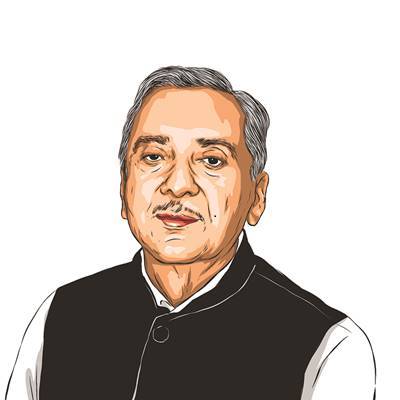Opinion When there was a vendetta against NCERT
The agency has to be responsive to changes in knowledge ecosystem
 Based on expert advice, the NCERT deleted a couple of other paragraphs as well. What followed was the great saffronisation debate in which certain ideologically-knit institutions and individuals attacked the NCERT. (Representational Image)
Based on expert advice, the NCERT deleted a couple of other paragraphs as well. What followed was the great saffronisation debate in which certain ideologically-knit institutions and individuals attacked the NCERT. (Representational Image) After over two decades, the NCERT is under attack again. In 2000-04, the attacks on it began after the deletions of paragraphs in textbooks that had remained untouched for decades. The then Lt Governor of Delhi issued orders to delete a paragraph which contained incorrect and objectionable descriptions of Guru Teg Bahadur. Earlier, the state assembly passed a resolution to this effect. The motion was moved by Congress MLA Arvinder Singh Lovely who mistook a reprint as a new textbook.
Based on expert advice, the NCERT deleted a couple of other paragraphs as well. What followed was the great saffronisation debate in which certain ideologically-knit institutions and individuals attacked the NCERT. These detractors of NCERT initiatives returned to their coveted positions after May 2004 and plunged head-on to demolish the National Curriculum Framework for School Education (NCFSE 2000) and junked every textbook prepared thereafter. They ignored the fact that the NCFSE 2000 was released at the National Stadium on November 14, 2000, in the presence of 10,000 students from Delhi schools. This endeavour drew the appreciation of the then NCERT President Murli Manohar Joshi.
Joshi, an academic of international repute, was convinced that education must be rooted in culture and committed to new knowledge for progress and development. These were his words of guidance to the NCERT and its director. The organisation needed nothing more. The NCERT requested its authors to remain true to the values enshrined in the Constitution. On September 12, 2002, a three-judge-bench of the Supreme Court unanimously approved all the recommendations in NCFSE-2000, particularly those related to the teaching of the basics of all the religions, value education, Sanskrit, Vedic mathematics and the mother tongue as medium of instruction. The matter was taken to the SC by persons who seem to have been driven by ideological motives.
The NCF-2005 was prepared in haste. Those who had full sway over academia and institutions from 1970 onwards were back in the saddle after six years. They did a demolition job in school education. The same was the case with textbook preparation. The role of the NCERT faculty was reduced to managing logistics and assisting textbook writing teams by providing support materials. Those who had worked tirelessly in earlier years became suspect in the eyes of the new establishment. An extensive harassment and vendetta campaign was launched.
The Director responsible for the NCFSE-2000 and new textbooks was subjected to an inquiry for having violated “the values enshrined in the Constitution”, and was prevented from receiving a UNESCO Award in Geneva. UNESCO Awards are not given on the recommendations of politicians. No one from amongst the flag-bearers of academic and institutional autonomy protested. He got rid of contrived charges and received his award in 2009 instead of 2004, only after the Delhi High Court of Delhi imposed a fine of Rs 2,000.
It is neither desirable nor prudent on my part to comment on the current deletions in NCERT textbooks. Though extremely short on academic faculty, the NCERT could have presented a picture of an organisation that keeps pace with the changes happening all around if it had prepared a new curriculum framework by 2015. In educationally alert countries, the curriculum is revised every five years, with provisions for including the “frontline curriculum” even earlier if such a need arises. The NCERT could have taken a lesson from its own experience in how it changed curricula and textbooks during 2004-05. It should have changed all of the textbooks laden with ideological moorings without any delay. There was no need to wait for the finalisation of the new education policy.
The government of Karnataka has acted fast, taking a cue from the national level strategy that was followed at the national level from 2004 May onwards. For the NCERT, there was no justification for continuing with books prepared 16-17 years ago only with minor modifications. The wishes of those who want their names deleted from the load-reduced books must be obliged. The NCERT respects every teacher and academic, but it must also remember that there is no dearth of independent scholars, scientists and researchers in this country, most of whom are grateful to the NCERT for opening up wider horizons before them. The entire nation supports the NCERT, and that remains its strength.
The writer works in education, social cohesion and religious amity. He is a former director of the NCERT





